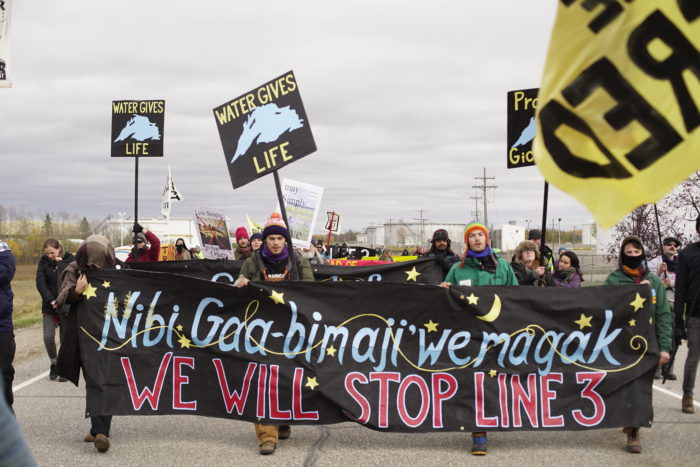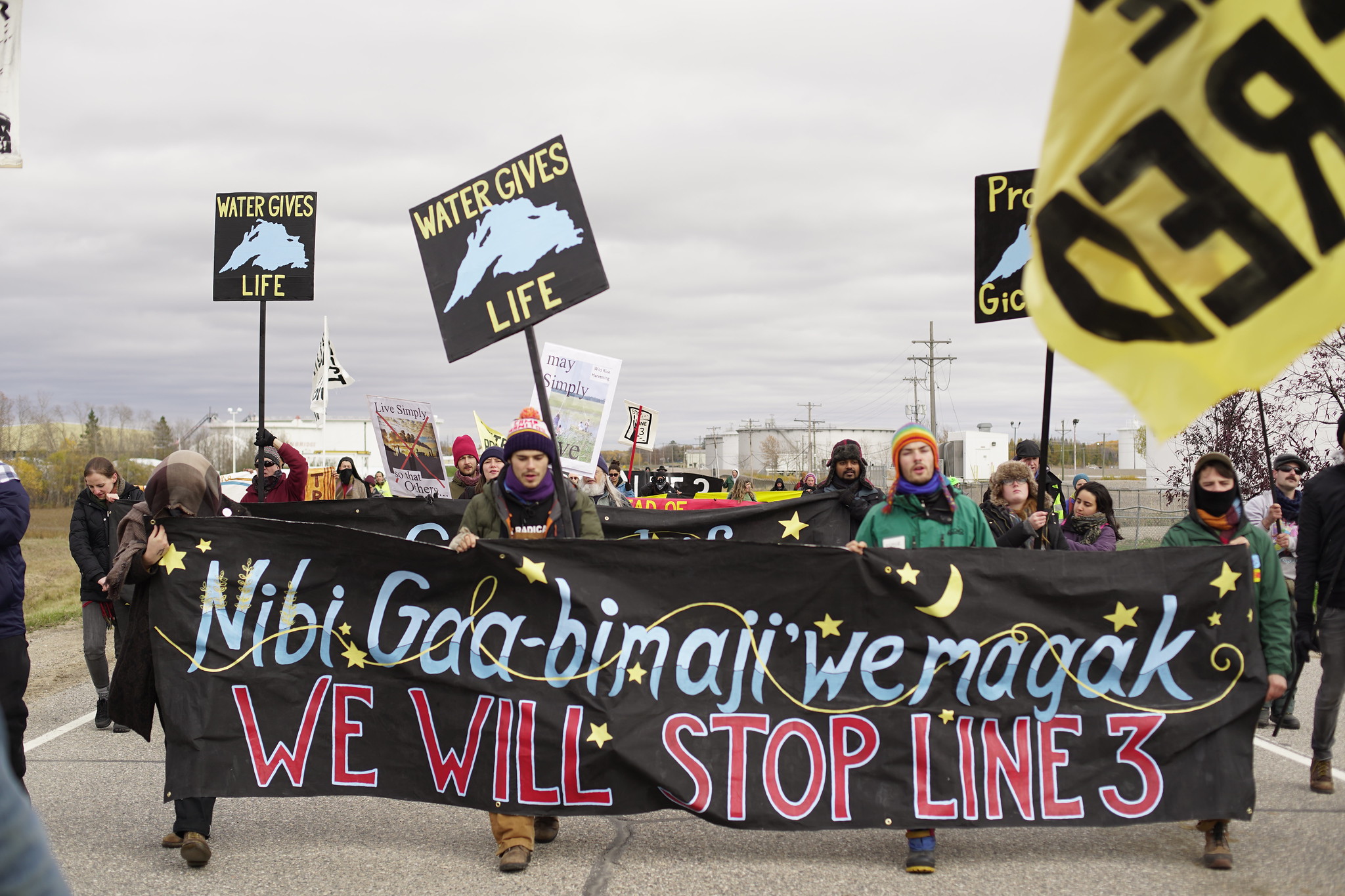This blog was originally published as a case study in “Banking on Climate Chaos: Fossil Fuel Finance Report 2021” — a report by Rainforest Action Network, BankTrack, Indigenous Environmental Network, Oil Change International, Reclaim Finance, and Sierra Club. You can see the full report here.
The resistance to Enbridge’s Line 3 tar sands pipeline has grown into an epic battle in the woods of northern Minnesota. With the Biden administration’s cancellation of a critical permit for the Keystone XL pipeline, and production from the tar sands higher than ever, there is immense political and financial pressure from Canada and the fossil fuel industry to build Line 3. But the push to build out tar sands infrastructure faces incredible social, legal, financial, and health risks — and this pipeline, which would run from Alberta’s tar sands across the border through Minnesota and into Wisconsin, is no exception.

Blockades, water protector camps, and protests at the governor’s residence and public hearings have spotlighted what is at stake: Enbridge’s Line 3 pipeline runs roughshod over Indigenous rights, threatens the Great Lakes, and jeopardizes our shared climate by expanding access to dirty tar sands oil. Despite fierce opposition, construction is complete in Wisconsin and Canada. In Minnesota, Enbridge secured key state and federal permits in November 2020 and has begun construction on the final length of the pipeline, despite active legal appeals from the Ojibwe peoples of the Red Lake Nation and the White Earth Nation, as well as environmental and youth groups. The project continues to face major obstacles — including one government agency suing another over the project, a pandemic, a worker death and ensuing investigation, and massive public resistance.
As of March 2021, there are at least 29 banks acting as lenders to seven Enbridge credit facilities totaling $12.9 billion, with participation from banks such as Barclays, JPMorgan Chase, MUFG, and TD. Given that Enbridge is not seeking any project-level financing for the project, these banks are essentially financing Line 3. Their support for the project comes even without the Free, Prior, and Informed Consent of the Ojibwe peoples, whose territory the pipeline cuts through.
Bank data sourced from Bloomberg Finance L.P.v
